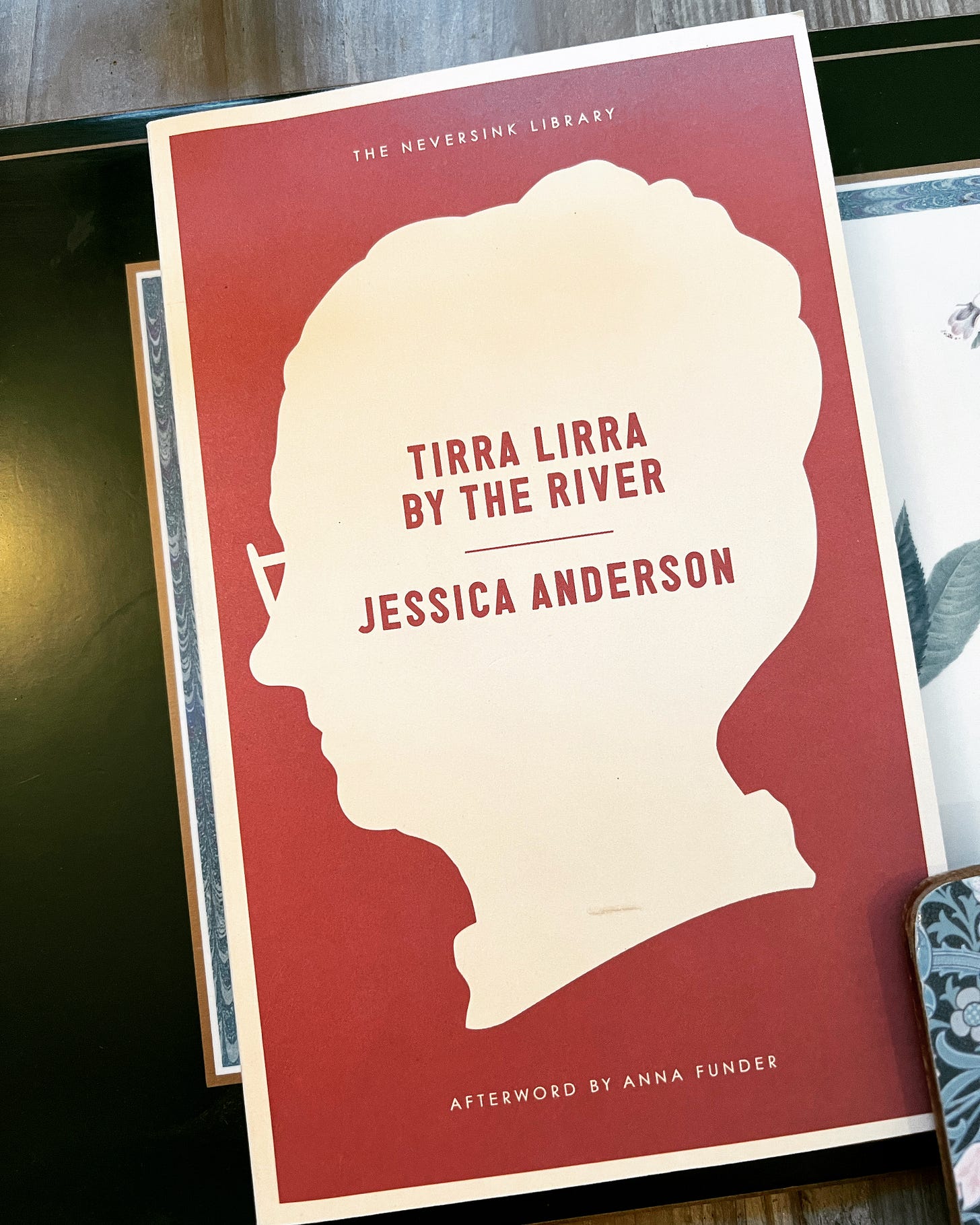Jessica Anderson’s Tirra Lirra by the River is narrated by the artist outsider Nora, who leaves Brisbane for Depression-era Sydney, then Sydney for grey and unfriendly London. When she returns to Australia, she reflects on her life.

This deeply personal story (it reads like a particularly candid autobiography, though it isn’t one) is about the sexist injustice of being, or more to the point not being, the Lady of Shalott. This injustice is explored with a distinctly Australian provocation hovering over Nora’s every move – ‘We don’t all think we’re too good for this place, Lady Muck’ (p. 18) – and it is unsparing stuff for anyone who has left their home, left their family:
Some families have an almost uncanny power of forcing an alienated member to behave according to its opinion of him or her, and as soon as I divined, in their reserved greetings, their questions, and their set reproachful mouths, the discussions they had had about me, I began to act in a manner to confirm them in their opinion. (p. 81)
Ibsen’s A Doll’s House is surely an intertext alongside Tennyson’s ballad; in a sense, perhaps, Nora’s story could be Nora Helmer’s after she slams the door on her husband Torvald. Most of the men are sanctimonious Torvald-types; one sequence involving one compassionless bastard, set in a London more lonely than liberating, made me gasp.
The consolation, in a rather melancholic novel, is that Nora is a true artist – in part, I realised as I read, because she tells her story so honestly and beautifully.
Anna Funder’s afterword to this Neversink Library edition, by the way, is worth reading. In it, she writes that in mid-1980s Melbourne, Tirra Lirra by the River was a set text in secondary schools, along with Christina Stead’s The Man Who Loved Children (a masterwork; challenging but worth the effort) and Carson McCullers’s The Member of the Wedding, and that ‘[t]hese books have stayed with me in a way so deep that I cannot unravel them from the writer, or the woman, I have become’ (p. 164). How wonderful is that!
And in related reading this week, the crises of identity that can result from wanderlust and emigration are captured in Megan Nolan’s short and raw and honest piece for The Guardian.



